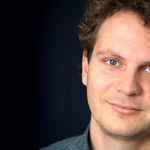The UvA launches new Bachelor's programme in Computational Social Science
2 July 2021

How can we develop digital interventions that increase the political and social engagement of citizens? Or that can strengthen freedom, well-being and ecology? What does it mean to be human when more and more human skills, such as memory and decision-making, are embedded in technology? The Bachelor's programme in Computational Social Science will academically train students to come up with creative and research-based answers to these kinds of questions and to develop sustainable digital interventions themselves.
This week, the programme was given the green light by the Accreditation Organisation of the Netherlands and Flanders (NVAO), thus making it the first programme of its kind in the world. 'This Bachelor's programme comes at the right time, given the rapid digitalisation of an increasingly globalised world', say the founders.
Academic professionals who can design sustainable digital interventions
The Bachelor's programme in Computational Social Science lies at the interface of social sciences, humanities and computational sciences and is offered by three faculties of the University of Amsterdam (Faculty of Science, Faculty of Humanities and the Faculty of Social & Behavioural Sciences).
Computational Social Science will train students to design, create and apply digital technology and data science for the benefit of society. Students will learn to analyse data in relation to social problems, identify opportunities for change, design evidence-based intervention strategies, program digital interventions through a hands-on approach and create conditions that support sustainable digital innovation.

The society of tomorrow needs these professionalsAssociate professor and co-founder of the programme Eelke Heemskerk
‘The society of tomorrow needs these professionals’, says associate professor Eelke Heemskerk, co-founder of the programme. ‘We are encountering new challenges as a result of digitalisation. It offers opportunities for solving social issues, but also brings with it new problems. There is therefore a considerable need for academic professionals who can design sustainable digital interventions and know the conditions under which these can help people and society.’
An innovative addition that responds to a clear need
‘Computational Social Science is an innovative addition to existing programmes and meets a clear need in the field’, according to the report of the NVAO assessing the programme. The panel of reviewers was delighted with ‘the transdisciplinary nature of the programme, its focus on research methods and techniques and its ambition to address and solve real world problems’.
Taught in English
The programme will be taught in English. 'The knowledge transfer and main interactions are in English, but in their group and project work students can use their language of preference,' says Heemskerk. ‘We do encourage international students to also learn Dutch, as they will also be working with Dutch partners and Dutch skills will help to get the most out of your studies.’
About NVAO
The Accreditation Organisation of the Netherlands and Flanders (NVAO) determines the quality of new degree programmes on the basis of a peer review procedure. This accreditation procedure is required when an educational institution wants to award a recognised degree after the successful completion of a study programme.
Want to find out more?
The degree programme will start in September 2022. If you would like to request more information now, please contact Eelke Heemskerk.